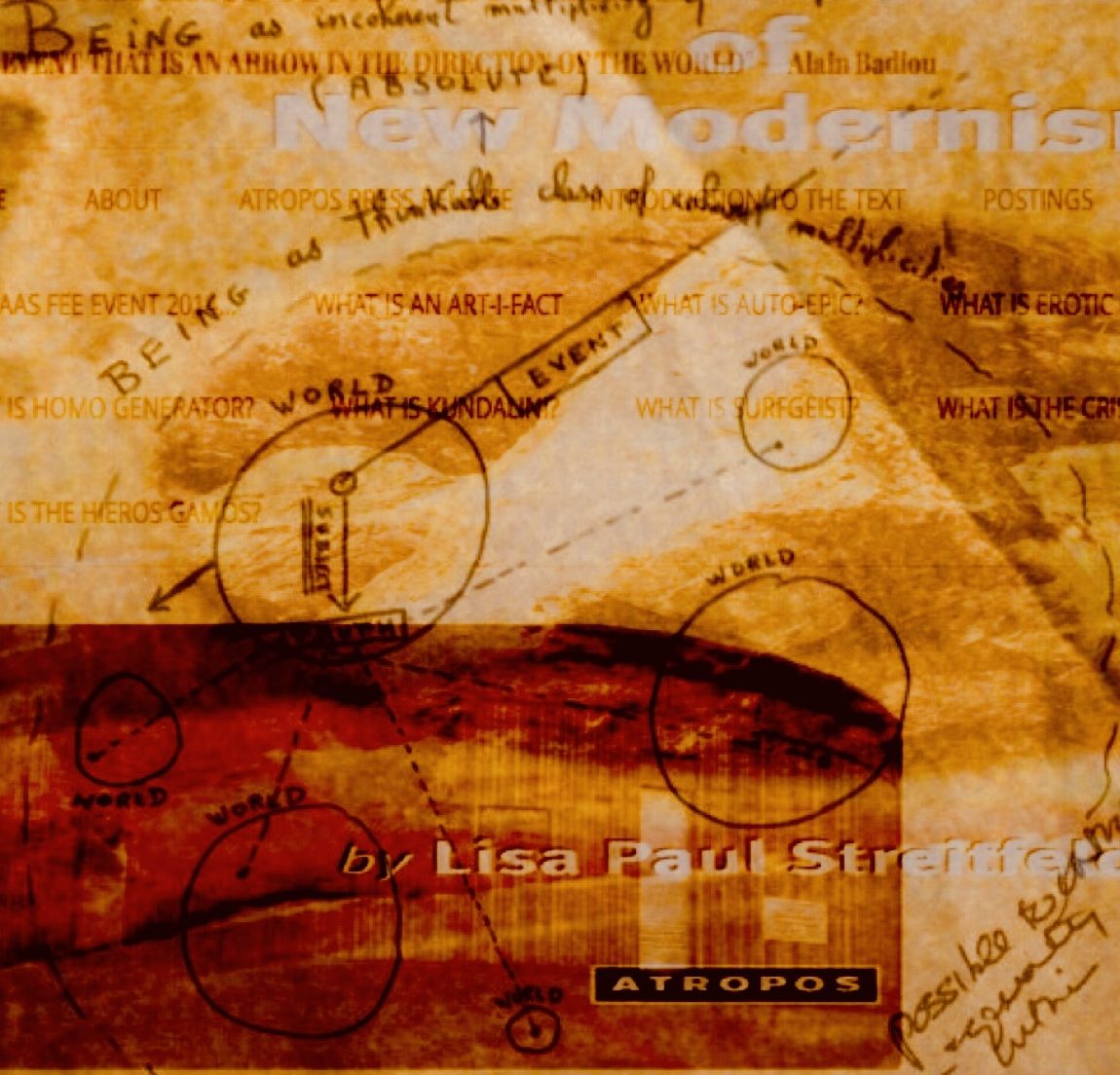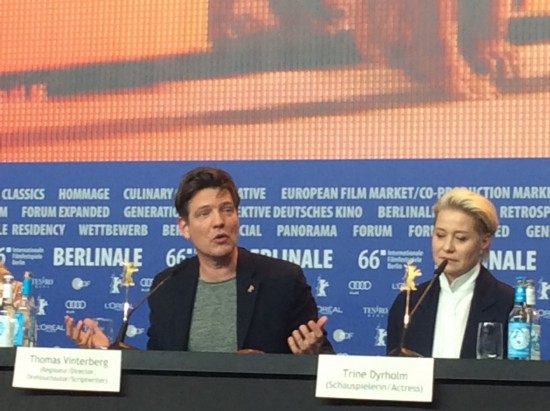“We are all Africans,” announced Meryl Streep, president of the International Jury for 66. Internationale Filmfestspiele Berlin.
With this statement, Meryl Streep set the tone for Berlinale 66., with its generous offerings of global cinema, as the red hot center of a universal movement into holistic integration, reflected within the individual and global society. Streep ingeniously parlayed her premiere position on a film festival jury as a gesture of return: “The globe should be half and half–not that it is binary but inclusion is the name of the game.”
George Clooney followed suit, far less eloquently, in response to a challenge by a Mexican reporter, asking him what he is doing about the immigration. He defensively dodged the question by turning it back on the reporter while announcing he had a private audience to discuss the matter with German Chancellor Angela Merkel. Thus, the “last of movie star” whose visible following in Berlin has severely diminished since his marriage, lit up the Internet gossip and news sites with the Berlin dialectic transforming the “immigration problem” to the “integration process” reflected in all aspects of the film selections of Berlinale.
As the daily premieres of Berlinale 66 progressed, it became apparent that immigration and geopolitical borders was the undeclared theme of the festival marking the decline of the movie star” and rise of the auteur intent on exploiting the collaborative medium of filmmaking as a passage of inner/outer integration.
The most memorable films managed to do both. Danish Tanovic’s Death in Sarajevo adaption of Bernard Henri Levy’s play won the Silver Bear Jury Prize for a dramatic depiction of the exterior/interior state of dis-integration in which a Sarajevo luxury hotel serves as the architectural geography of transformation from the lower realms of basement violence to the roof of intellectual discourse.
Ravi Pitts’ Soy Nero explored an immigration sub-theme of boundaries as Borge personal and geopolitical is story of a Mexican seeking to scale the border as a “Dream Soldier”. The first feature of the German director Anne Zohra Berrached had a biological boundary imbedded in its title, making 24 Weeks a moving drama of ticking time summing up the decision of the majority of pregnant German women to abort in the case of an unhealthy birth prognosis.
One of the more experimental films of the festival revealed universalism within geographical specificity; Hotel Dallas is a real tourist doppelgänger site in Romania, as well as a film collaboration between Romanian artist Livia Ungur and her Chinese American partner Sherng-Lee Huang uniting all manners of genre to create a surreal reality revealing the fallout of the communist regime’s methodology of attempting to instill social values through the airing of the eighties American hit TV show.
In Ali Abbasi’s Shelly, a fetus becomes a monster because of the failure of a Romanian body to contain the implantation of an embryo of a Viking couple. The horror film treatment of cross-cultural integration made this English/Danish/Romanian/Norwegian/Swedish film the unexpected Panorama breakthrough. The Panorama audience favorite, Udi Aloni’s Junction 48, pioneering new terrain of the Israeli Arab/Hebrew collaboration in which a Palestinian rap star expresses through his character original music embracing the multiplicity of new narratives arising from the Third realm of integration.
Fresh from its success at Sundance, Elite Zexer’s Sufat Chol (Sandstorm) is an intimate portrait of an enigmatic young woman pushing against the restrictive Bedouin social system to pursue her own path through love. This Israeli film, the outgrowth of enriching relationships the director established with the local Arab community, shared a powerful Arab actress with an Israeli TV hit, whose star arrived in Berlin to discuss how he plays both an Arab and a Jew as a human solution to the racial divide.
The first two episodes of The Writer screened in Berlin succeeded in breaking five taboos in as many minutes of its opening episode. The Israeli culture is therefore providing unparalleled insight into a binary system that can only be resolved through the creative leap into the Third space, defined by Aloni as a Noir Art transforming the dark energy of Uncertainty into the universal light of love.
The film that revealed the quest for integration as an explosion into a new cinematic form blending classical storytelling with urban hip-hop was Spike Lee’s electrifying Chi-Raq satire of Aristophanes’ Lysistrata. The explosion of the Spike Lee vision, a celebratory culmination of his vision seeded in She’s Gotta Have It vibrated off the gigantic screen of the International Theater and through the audience of what has to be the boldest and most original display of feminine empowerment on the history of the silver screen.
On the third day of the festival, Gianfranco Rosi’s Fucoammare had its premiere. This breakthrough film had Golden Bear written all over it for the manner that it so deftly interwove inner and outer states communicated with a natural arising of symbols from the characters and landscape of the Italian island of Lampedusa. Where so many hopeful immigrants washed ashore in dreadful condition–necessitated treatment by the island’s doctor who stopped time at the press conference (above) with his heart rendering medical account of the tragedy. This unexpected Berlinale 66 star put the professional actors to shame–bringing the question asked of Clooney into a dialectic encompassing art, philosophy, religion and politics.
With this authentic disclosure of such a challenging new theme for global cinema, Mohammed Ben Attia’s Inhebbek Hedi, the first Tunisian film in two decades, won the Siver Bear for First Film and Best actor for Majad Mastoura. Thomas Vinterberg’s Kollektivet (Commune) about a seventies experiment in free love won a much deserved Best Actress Silver Bear for Trine Dyrholm. This courageous Botox-free performance of a seventies breakdown inscribed into the face of a female newscaster who planted the seeds of her own destruction from the fallout of convincing her husband to turn their spacious new home into a commune. In keeping with the celebration of the newfound feminine theme of self-empowerment through psychological descent, France’s Mia Hansen-Love won the Best Director Silver Bear for L’avenir, featuring Isabel Huppert in her most fulfilling role.
In deciding to liberate his collaborative art form from both communist and religious symbols, Tomasz Wasilewsk, director of Zjednoczone Stany Milosci (United States of Love) revealed the collaborative process by which symbols of unification (hieros games) unfold through the literal fabrics framing his nation’s foremost actresses within the Polish lead in the essential new narrative of feminine spiritual “embodiment”.
As a whole, Berlinale 66. was a festival mindful of the balance indicated by its number. Michael Grandage’s brilliantly executed first feature, Genius, revealed artistic breakthrough as the essential balance between archetypes of father (Colin Firth) and son (Jude Law). Yet the overt slighting of the feminine demanded by the male theme shared the actress Jennifer Eule with Terrence Davies’ A Quiet Passion. Dulled by the role of the creatively unfulfilled wife of Maxwell Perkins, Elle’s luminous feminity sharpened into a compelling portrait of sisterly counter-balance to Cynthia Nixon’s heart-rendering portrayal of Emily Dickenson’s fated embodiment of the human sacrifice required by female genius.
In marked contrast to the patriarchal control of hierarchical linear time revealed in Alex Gibney’s harrowing Zero Days Stuxnet revelation of planetary threat from covert technology, the festival closed with a celebratory reinvention of the French road film as a passage into the paradigm less of kairos.
Saint Amour co-directors Benoit Delepine and Gustave Kervern placed Venus into the body of the stunning green-eyed red hair Celine Sallette, providing a final image of feminine embodiment in her belly, pregnant with a future in which three fathers (Gerald Depardieu, Benoit Poelvoorde and Vincent Lacoste) claimed responsibility.
Three cheers for the future of film birthed in the third space of the erotic consciousness!









